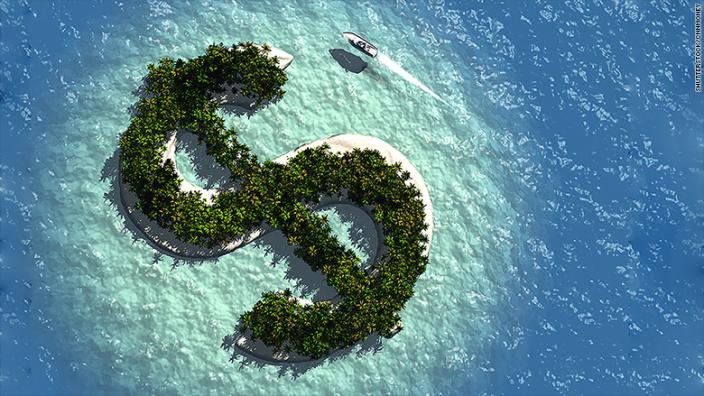Experts including Thomas Piketty, Jeff Sachs, Nora Lustig and Angus Deaton call for more tax transparency
More than 300 leading economists from 30 countries have today written to world leaders warning that there is no economic justification for allowing tax havens to continue, and urging them to bring an end to offshore financial secrecy. The letter comes ahead of the UK Government’s summit on offshore corruption in London on Thursday, which politicians from 40 countries as well as World Bank and IMF representatives are expected to attend.
Signatories include Thomas Piketty, author of best-selling ‘Capital in the Twenty-First Century’; Angus Deaton, the current Nobel Prize-winner for Economics and Nora Lustig, professor of Latin American Economics at Tulane University, as well as influential experts with experience of advising governments and policymakers, such as Jeff Sachs, director of Columbia University’s Earth Institute and an adviser to UN Secretary General Ban Ki-moon, and Olivier Blanchard, former IMF chief economist.
Professors from the world’s top universities such as Harvard, Oxford and the Sorbonne and from countries as diverse as Finland and Cameroon have united to warn global leaders that tax havens undermine countries’ ability to collect taxes, with poor countries proportionally the biggest losers. Despite having different views on desirable levels of taxation, they all agree that “territories allowing assets to be hidden in shell companies or which encourage profits to be booked by companies that do no business there are distorting the working of the global economy.”
To counter this, the economists are calling for governments to agree new global rules requiring companies to publicly report taxable activities in every country they operate, and to ensure all territories publicly disclose information about the real owners of companies and trusts.
Jeff Sachs said: “Tax havens do not just happen. The British Virgin Islands did not become a tax and secrecy haven through its own efforts. These havens are the deliberate choice of major governments, especially the United Kingdom and the United States, in partnership with major financial, accounting, and legal institutions that move the money.
“The abuses are not only shocking, but staring us directly in the face. We didn’t need the Panama Papers to know that global tax corruption through the havens is rampant, but we can say that this abusive global system needs to be brought to a rapid end. That is what is meant by good governance under the global commitment to sustainable development.”
The economists’ letter says that the UK is uniquely placed to take a lead in ending offshore secrecy as it has sovereignty over around a third of the world’s tax havens through its Overseas Territories and Crown Dependencies. More than half of the companies set up by Mossack Fonseca, the law firm in the Panama Papers leak, were incorporated in British Overseas Territories such as the British Virgin Islands.
Oxfam, which co-ordinated the letter, is calling for world leaders to agree plans to end offshore secrecy globally, so that closing loopholes in one haven doesn’t result in tax dodgers moving their business to another.
The current system allows the rich and powerful to hide money offshore, robbing countries of much needed tax revenue for essential services like healthcare and education. Oxfam empowers people to lift themselves out of poverty but is warning that millions of the world’s most vulnerable people will stay poor if tax havens remain as they are.
Winnie Byanyima, Oxfam International Executive Director, said: “Millions of the world’s poorest people will continue to be the biggest victims of tax dodging until governments act together to tackle tax havens, by introducing public registers of who really owns companies and trusts as well as automatic tax information-sharing between countries.
“Governments, the UN, the IMF and the World Bank also need to lay the groundwork for a second generation of global tax reforms to crack down on corporate tax dodging that goes beyond current piecemeal proposals.”
Anna Ratcliff +44 (0)7796 993288, anna.ratcliff@oxfaminternational.org
The letter is outlined in full below. A full list of signatories is here
A case study outlining the impact of tax dodging in Malawi is outlined below.
On Thursday, UK Prime Minister David Cameron will host the international Anti-Corruption Summit in London, which aims to step up global action to expose, punish and drive out corruption in all walks of life.
On the day of the summit, Oxfam will transform London’s iconic Trafalgar Square into an interactive tropical beach ‘tax haven’ with dozens of volunteers in business suits playing beach games and relaxing on deck-chairs, in an eye-catching stunt to increase public pressure on delegates to agree plans to end tax havens.
Oxfam is calling for a move against tax havens to be part of a three-pronged attack on inequality. Urgent action must be taken to recover the missing billions lost to tax havens, but this needs to go hand in hand with governments’ commitment to invest in healthcare, education and other vital public services that make such a big difference to the lives of the poorest people. More information here.
THE LETTER
Dear world leaders,
We urge you to use this month’s anti-corruption summit in London to make significant moves towards ending the era of tax havens.
The existence of tax havens does not add to overall global wealth or well-being; they serve no useful economic purpose. Whilst these jurisdictions undoubtedly benefit some rich individuals and multinational corporations, this benefit is at the expense of others, and they therefore serve to increase inequality.
As the Panama Papers and other recent exposés have revealed, the secrecy provided by tax havens fuels corruption and undermines countries’ ability to collect their fair share of taxes. While all countries are hit by tax dodging, poor countries are proportionately the biggest losers, missing out on at least $170bn of taxes annually as a result.
As economists, we have very different views on the desirable levels of taxation, be they direct or indirect, personal or corporate. But we are agreed that territories allowing assets to be hidden in shell companies or which encourage profits to be booked by companies that do no business there, are distorting the working of the global economy. By hiding illicit activities and allowing rich individuals and multinational corporations to operate by different rules, they also threaten the rule of law that is a vital ingredient for economic success.
To lift the veil of secrecy surrounding tax havens we need new global agreements on issues such as public country by country reporting, including for tax havens. Governments must also put their own houses in order by ensuring that all the territories, for which they are responsible, make publicly available information about the real “beneficial” owners of company and trusts. The UK, as host for this summit and as a country that has sovereignty over around a third of the world’s tax havens, is uniquely placed to take a lead.
Taking on the tax havens will not be easy; there are powerful vested interests that benefit from the status quo. But it was Adam Smith who said that the rich “should contribute to the public expense, not only in proportion to their revenue, but something more than in that proportion.” There is no economic justification for allowing the continuation of tax havens which turn that statement on its head.
CASE STUDY: MALAWI
Tax revenue that should be helping to fund public services like healthcare and education in Malawi and other poor countries is disappearing at an alarming rate. It’s estimated that Africa loses around $14 billion in tax revenues annually – enough money to pay for healthcare for mothers and children that could save four million children’s lives a year and employ enough teachers to get every African child into school.
In Malawi, it’s impossible to get a full picture of the scale of tax dodging. However, Oxfam calculated that the lost tax revenue from the money revealed to be held by Malawians in HSBC accounts in Geneva in last year’s Swissleaks scandal could pay the salaries of 800 nurses for one year.
Half of Malawi’s 16 million people live in poverty. The health system is seriously under-resourced with shortages of staff and vital medicines. On average there are just three nurses for every 10,000 people. Public spending per primary-school child is among the world’s lowest. Recent cuts to government budgets are making the situation even worse for the poorest who have no way to pay for private clinics and schools.



